THE EXPERIENCE: INTERDISCIPLINARY RESEARCH LEADERS
Over the course of the three-year program, fellows will:
- Receive annual support of $25,000 per person and a one-time research grant of up to $125,000 per team—for salary, research costs, and more.
- Hone high-level leadership skills through networking, an advanced curriculum, and mentorship from national experts in research, community action, health equity, public policy, and advocacy.
- Advance a team research project with support from national program advisers.
- Continue working in their home communities and apply knowledge to local needs.
- Gain insights that fundamentally change their understandings of their communities, their work, themselves, and how all three relate to one another.
- Become part of a national group of leaders spanning sectors and disciplines.
- The 2022 theme is “structural racism and health.”
THE RESULT: ENHANCED LEADERSHIP SKILLS
Upon completion, fellows will have the tools to:
- Engage in change leadership for the promotion of health equity and social justice.
- Improve facilitation of rigorous, action-oriented research that benefits community members and advances health equity goals, prioritizing ethical research and community standards.
- Lead and collaborate across sectors, professions, and disciplines.
- Understand the policy process and how best to communicate research evidence to inform policy and influence systems and institutions.
- Integrate equity, Culture of Health, and related concepts into current work, including understanding of constraints to action, such as structural racism.
- Frame issues and build public support to address them.
- For community partners: increase capacity to partner with researchers and to find, understand and interpret findings and leverage them for action.
- For researchers: Increase expertise in authentic community engagement and enhance competencies in rigorous qualitative and quantitative methodologies critical to effecting change.
The Robert Wood Johnson foundation
These programs continue the Robert Wood Johnson Foundation’s legacy of supporting the development and diversity of leaders. Initially focused on health and health care, the programs have been expanded, because we know that building a Culture of Health requires all of us in every sector, profession and discipline working together.
For more than 40 years, the Robert Wood Johnson Foundation has worked to improve health and health care. It is working with others to build a national Culture of Health, enabling everyone in America to live longer, healthier lives.
For more information, visit www.RWJF.org
PROGRAM LEADERSHIP
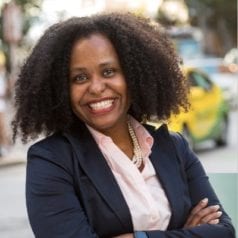

VANYA JONES CO-DIRECTOR, INTERDISCIPLINARY RESEARCH LEADERS; ASSOCIATE PROFESSOR, JOHNS HOPKINS BLOOMBERG SCHOOL OF PUBLIC HEALTH
Vanya Jones is an Associate Professor at the Johns Hopkins Bloomberg School of Public Health in the Department of Health, Behavior and Society. She is an injury prevention researcher that partners with individuals, communities, and governmental offices to create sustainable public health change approaches. Her academic career merges health education and program development to reduce the burden of unintentional and intentional injuries for underserved populations (children and older adults) and communities with limited resources. She received her undergraduate degree from Bowling Green State University, an MPH from the University of North Carolina at Chapel Hill (UNC), and a PhD from the Johns Hopkins Bloomberg School of Public Health.
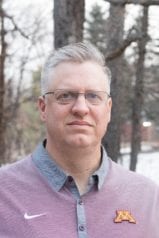

TOBEN NELSON CO-DIRECTOR, INTERDISCIPLINARY RESEARCH LEADERS; PROFESSOR, UNIVERSITY OF MINNESOTA SCHOOL OF PUBLIC HEALTH
Toben Nelson is a Social Epidemiologist who works on community-based health promotion and evaluation of strategies to improve population health. He is an Associate Professor in the Division of Epidemiology and Community Health at the University of Minnesota School of Public Health and works with the Alcohol Epidemiology Program and Minnesota Population Center. His research focus is on policy approaches to prevention of alcohol-attributable harm, injury, and violence; physical activity promotion and social determinants of health. Dr. Nelson received his ScD from the Harvard School of Public Health and MS in Kinesiology from the University of Wisconsin- Madison.
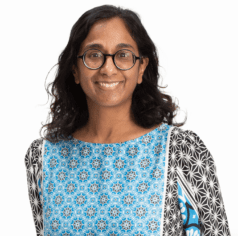

SHALINI KULASINGAM ASSOCIATE DIRECTOR OF RESEARCH, INTERDISCIPLINARY RESEARCH LEADERS; PROFESSOR, UNIVERSITY OF MINNESOTA SCHOOL OF PUBLIC HEALTH
Shalini Kulasingam is an Associate Professor in the Division of Epidemiology and Community Health at the University of Minnesota. Dr. Kulasingam’s research interests include human papillomavirus (HPV), cervical cancer, cancer screening, vaccines, and decision and cost-effectiveness modeling. Her expertise centers on chronic diseases including cancer, infectious diseases including sexually transmitted infections, evaluation of screening tests, vaccination, decision modeling and cost-effectiveness analyses.
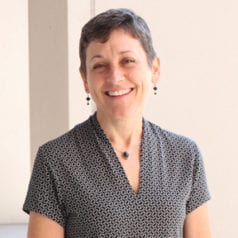

KATHLEEN CALL ASSOCIATE DIRECTOR OF COMMUNITY ENGAGEMENT, INTERDISCIPLINARY RESEARCH LEADERS; PROFESSOR, UNIVERSITY OF MINNESOTA SCHOOL OF PUBLIC HEALTH
Kathleen Call is a Professor in the Division of Health Policy and Management at the University of Minnesota School of Public Health and an investigator with the State Health Access Data Assistance Center (SHADAC) funded by the Robert Wood Johnson Foundation. She co-chairs the Health Equity Work Group in the School of Public Health and plays a role in the community engagement core of the Clinical Translational Science Institute. Her research focuses on the complexities of measuring health insurance coverage, including the discrepancy between survey and administrative data counts of insurance coverage, and how well health insurance translates into equitable access to health care. She is also interested in developing community-driven solutions to health insurance and health care barriers.
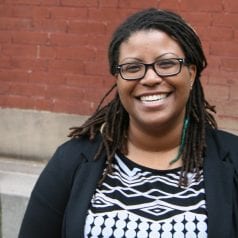

ZINZI BAILEY ASSOCIATE DIRECTOR OF RESEARCH LEADERSHIP AND PRACTICE, INTERDISCIPLINARY RESEARCH LEADERS; ASSISTANT PROFESSOR, UNIVERSITY OF MIAMI MILLER SCHOOL OF MEDICINE
Zinzi Bailey is a social epidemiologist focused on cancer health disparities, as well as the health impacts of and policy solutions for structural and institutional discrimination, especially at the intersection of public health and criminal justice. She is also interested in the use of data and indicators in equitable policy and management. She is currently a Research Assistant Professor at the University of Miami Miller School of Medicine’s Jay Weiss Institute for Health Equity at the Sylvester Comprehensive Cancer Center. Zinzi was the Director of Research and Evaluation at the Center for Health Equity in the New York City Department of Health and Mental Hygiene from 2015–2017. She was a postdoctoral fellow at McGill’s Institute for Health and Social Policy from 2014-2015, and a Research Fellow at the Harvard Kennedy School’s Program in Criminal Justice Policy and Management 2011-2014. She received her Doctor of Science degree in Social and Behavioral Sciences from Harvard T. H. Chan School of Public Health, and her Master of Science in Public Health degree with a concentration in Global Epidemiology from Emory University. Zinzi serves as a member of the IRL Research Team and co-chair of IRL Equity, Diversity, and Inclusion Taskforce.
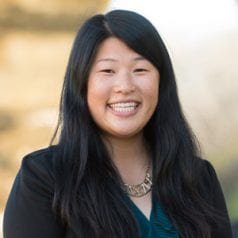

MANDY LABRECHE ASSOCIATE DIRECTOR OF OPERATIONS, INTERDISCIPLINARY RESEARCH LEADERS, DIVISION OF EPIDEMIOLOGY & COMMUNITY HEALTH, UNIVERSITY OF MINNESOTA SCHOOL OF PUBLIC HEALTH
Mandy LaBreche is the Associate Director of Operations of the Interdisciplinary Research Leaders program in the School of Public Health at the University of Minnesota (UMN). Her work involves managing all program aspects, including logistics, operations, finances, and reporting. She has had diverse experiences, both domestically and abroad, working to address health disparities through collaborative research and programming. Prior to joining IRL, Mandy managed a National Cancer Institute-funded center to reduce cancer health disparities among southern California’s Pacific Islander population. She is constantly inspired by collaborative and creative work that sparks social change within communities.
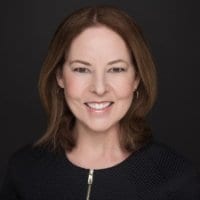

BONNIE AUSTIN CLUXTON PARTNER, INTERDISCIPLINARY RESEARCH LEADERS, VICE PRESIDENT, ACADEMYHEALTH
Bonnie A. Cluxton is a Vice President at AcademyHealth, where she leads the organization’s strategic planning and staffs the Board of Directors and board committees. She currently conducts programmatic and grantmaking activities on a number of Robert Wood Johnson Foundation projects with an emphasis on facilitating the use of research in policy and practice. For fifteen years, Ms. Cluxton supported the RWJF Changes in Health Care Financing and Organization initiative, including serving for seven years as director. Prior to joining AcademyHealth in 2001, she worked for 10 years as a litigator at Skadden, Arps, Slate, Meagher & Flom, LLP. Her practice involved representing clients, including health care providers, in criminal investigations, civil suits and administrative proceedings. Ms. Cluxton received her M.P.H. from The George Washington University, her J.D. from the University of Notre Dame School of Law and her B.A. from Dartmouth College.
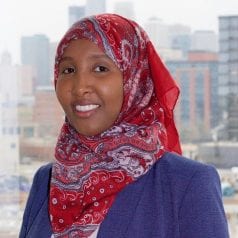

IFRAH BIYOOW RESEARCH ANALYTICS SPECIALIST, INTERDISCIPLINARY RESEARCH LEADERS, DIVISION OF EPIDEMIOLOGY & COMMUNITY HEALTH, University of Minnesota School of Public Health
Ifrah Biyoow is the Research & Analytics Specialist for the Interdisciplinary Research Leaders (IRL) program. Ifrah is a research professional interested in research methodology, social epidemiology, and leadership development. She has worked in the public health arena since 2009 in various capacities – researcher, data analyst, evaluator, and project coordinator. Ifrah is dedicated to promoting health and health equity through cross-disciplinary, collaborative approaches that incorporate scientific rigor, meet community needs, and focus on solutions and impact. In addition to her IRL role, she is working towards completing a doctorate degree in Epidemiology at the University of Minnesota.
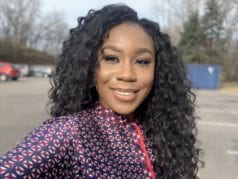

PRAISE MAFE INTERDISCIPLINARY RESEARCH LEADERS, CURRICULUM COORDINATOR
Praise (Fiyinfoluwa) Mafe attended the University of Minnesota, majoring in Biology, Society and Environment. During her undergraduate career, Praise participated in MCAE, African Student Association, North Stem Alliance, and was a Community Advisor for three years. The skills and experiences gained in these roles framed her career path and led her to Interdisciplinary Research Leaders. Praise is excited and grateful to join IRL as Curriculum Coordinator because of the fascinating people and the amount of professional growth she will experience learning from the IRL team and fellows. In addition to her role with IRL, Praise is also a self taught beauty artist and hair stylist, using her talents to run her own business in Minnesota.
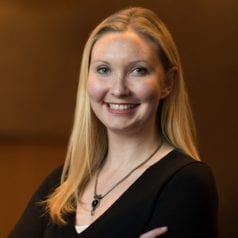

LIBBY FORTNER ADMINISTRATIVE LEAD, INTERDISCIPLINARY RESEARCH LEADERS, DIVISION OF EPIDEMIOLOGY & COMMUNITY HEALTH, UNIVERSITY OF MINNESOTA SCHOOL OF PUBLIC HEALTH
Libby Fortner is administrative lead for Interdisciplinary Research Leaders (IRL). Her work involves assisting with meetings and events; coordinating contracts, invoices, and other financial activities; and participating in a variety of special projects. Ms. Fortner has more than five years of experience in providing high-level support to faculty in the Division of Epidemiology & Community Health of the School of Public Health at the University of Minnesota. She enjoys learning about how the IRL research projects are working to make our world a better place.
National advisory committee
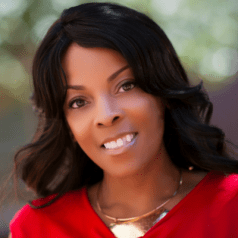

WIZDOM POWELL
NATIONAL ADVISORY COMMITTEE, INTERDISCIPLINARY RESEARCH LEADERS
DIRECTOR OF HEALTH DISPARITIES INSTITUTE AT UCONN HEALTH
Wizdom Powell is Director of the Health Disparities Institute and Associate Professor of Psychiatry at UConn Health. Formerly, Dr. Powell was Associate Professor at Health Behavior at UNC-Chapel Hill’s Gillings School of Global Public Health and Research Associate Professor in UNC’s Department of Social Medicine. Dr. Powell also served as Associate Director of the Center for Health Equity Research, faculty member at UNC’s Lineberger Comprehensive Cancer Center, and Director of the UNC’s Men’s Health Research Lab. In 2011-2012, she was appointed by President Obama to serve as a White House Fellow to Secretary of Defense Leon Panetta. In this role she provided subject matter expertise on Military Mental Health (e.g., PTSD, Suicide, and Military Sexual Trauma). Her community-based research focuses on of the role of modern racism and gender norms on African American male health outcomes and healthcare inequities. Read more about Dr. Powell.
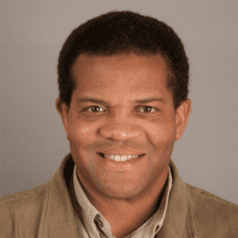

ANTHONY ITON
NATIONAL ADVISORY COMMITTEE, INTERDISCIPLINARY RESEARCH LEADERS
SENIOR VICE PRESIDENT OF HEALTH COMMUNITIES, THE CALIFORNIA ENDOWMENT
Anthony Iton is the Senior Vice President of Health Communities at The California Endowment. His primary focus includes the health of disadvantaged populations and the contributions of race, class, wealth, education, geography, and employment to health status. Dr. Iton oversees the organization’s 10-year, multi-million-dollar statewide commitment to advance policies and forge partnerships to build healthy communities and a healthy California. Dr. Iton holds a Bachelor of Science in Neurophysiology from McGill University, Juris Doctor from the University of California, Berkeley, and Medical Degree from Johns Hopkins University.
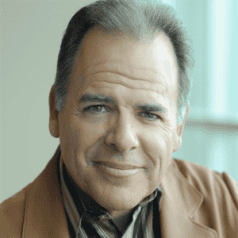

SPERO MANSON
NATIONAL ADVISORY COMMITTEE, INTERDISCIPLINARY RESEARCH LEADERS
DISTINGUISHED PROFESSOR OF PUBLIC HEALTH AND PSYCHIATRY, UNIVERSITY OF COLORADO, DENVER
Spero Manson is a distinguished professor of Public Health and Psychiatry, directs the Centers for American Indian and Alaska Native Health, and occupies the Colorado Trust Chair in American Indian Health in the School of Public Health at the University of Colorado, Denver. His research focuses on the assessment, epidemiology, treatment, and prevention of physical, alcohol, drug, as well as mental health problems over the developmental lifespan of Native people. Dr. Manson is widely acknowledged as one of the nation’s leading authorities in Indian and Native health. He holds a Bachelor of Arts in anthropology from the University of Washington and a Master of Arts and Doctorate in anthropology from the University of Minnesota.


VICTOR RUBIN
NATIONAL ADVISORY COMMITTEE, INTERDISCIPLINARY RESEARCH LEADERS
SENIOR FELLOW, POLICYLINK
Victor Rubin is a Senior Fellow at PolicyLink, a national nonprofit institute for policy change. He leads, designs, and conducts knowledge-building activities to create a strong research base for PolicyLink. Dr. Rubin is an urban planner with broad experience in community development, education, and social policy and has guided PolicyLink analyses on the issues that include infrastructure, economic growth, healthy communities, and youth development. Dr. Rubin holds a Bachelor of Arts from the University of Chicago and a Master of City Planning and a Doctorate in Planning from the University of California, Berkeley.
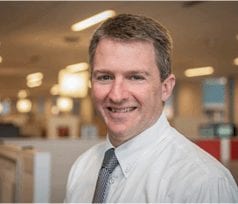

BRIAN SAELENS
NATIONAL ADVISORY COMMITTEE, INTERDISCIPLINARY RESEARCH LEADERS
HEALTH PSYCHOLOGIST AND PROFESSOR OF PEDIATRICS, SEATTLE CHILDREN’S HOSPITAL AND UNIVERSITY OF WASHINGTON SCHOOL OF MEDICINE
Brian Saelens is a Health Psychologist and Professor of Pediatrics and Psychiatry and Behavioral Sciences at Seattle Children’s Hospital and the University of Washington School of Medicine. He conducts research in environmental influences on physical activity and eating behaviors and on the psychosocial factors that influence individual choice for weight-related behaviors, which includes examining how the neighborhood environment impacts weight status, physical activity and dietary behaviors across the lifespan. Dr. Saelens holds a Bachelor of Arts from Cornell University and Doctorate in Clinical/Health Psychology from State University of New York at Buffalo.
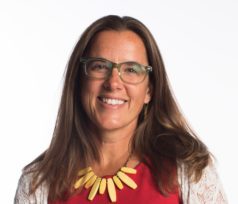

ABBY HUNT
NATIONAL ADVISORY COMMITTEE, INTERDISCIPLINARY RESEARCH LEADERS
EXECUTIVE DIRECTOR OF HEALTH CARE EDUCATION AND TRAINING INC. (HCET)
Abby Hunt is an IRL Cohort 2 community partner alumna and the executive director at Health Care Education and Training (HCET), based in Indianapolis. For over 20 years, Ms. Hunt has worked to improve individual, family, and community health through service learning and the design, implementation, and evaluation of evidence-based sexual/reproductive health services and programs across the Midwest. A self-described “implementation practitioner,” Ms. Hunt has worked in a community-academic partnership for over 12 years to manage and evaluate trauma-informed positive youth development, teen pregnancy prevention, and STD/HIV prevention programs in close collaboration with communities. The IRL fellowship was an incredibly impactful experience in her career and she will bring her belief in the power of community/research partnership to the NAC. She is also the parent of three boys and strongly believes in reading and writing early and often, getting outside and unstructured, and working to center reproductive and sexual health as a priority in all spaces impacting youth, families, and communities.
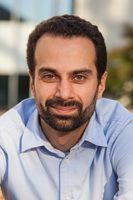

PAUL SINGH
NATIONAL ADVISORY COMMITTEE, INTERDISCIPLINARY RESEARCH LEADERS
VICE PRESIDENT OF COMMUNITY INITIATIVES, NEIGHBORWORKS AMERICA
As vice president of Community Initiatives, Paul Singh leads NeighborWorks America’s support for comprehensive community development efforts to build vibrant local communities that provide equitable opportunities for people to thrive. Singh oversees the Stable Communities, Community Building and Engagement, Rural and Healthy Homes and Communities initiatives and the work of these teams to elevate and strengthen local practice through grantmaking, technical assistance, capacity building, peer-to-peer learning, demonstration projects, stakeholder convenings, and research.
Before joining NeighborWorks in 2012, Singh was a program officer at LISC where he managed multiple programs delivering technical assistance and training to nonprofits. Singh got his start in community development at Historic Saint Paul, a nonprofit dedicated to preserving the historic character of his hometown of St. Paul, Minnesota. He has a master’s in urban and regional planning from the University of Minnesota and an undergraduate degree from Macalester College.


DR. FARRAH JACQUEZ
NATIONAL ADVISORY COMMITTEE, INTERDISCIPLINARY RESEARCH LEADERS
PROFESSOR AND ASSISTANT HEAD OF THE PSYCHOLOGY DEPARTMENT AT THE UNIVERSITY OF CINCINNATI
Dr. Farrah Jacquez is a professor and assistant head of the Psychology Department at the University of Cincinnati. Following graduate training in clinical psychology at the University of Notre Dame and Vanderbilt University, and postdoctoral training in pediatric psychology at the University of Miami School of Medicine, she honed her focus on community-engaged approaches to health equity and broadening participation in science and research. Together with community partners, she has secured funding through NIH, RWJF, and AmeriCorps for research impacting community health. Dr. Jacquez is co-director of Community Engagement for the Center for Clinical and Translational Science and Training (CCTST), co-editor of the Journal of Participatory Research Methods, and serves on the board of directors for Community-Campus Partnerships for Health (CCPH).
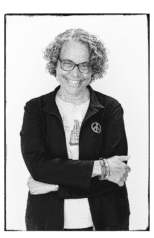

MINDY THOMPSON FULLILOVE
NATIONAL ADVISORY COMMITTEE, INTERDISCIPLINARY RESEARCH LEADERS
SOCIAL PSYCHIATRIST AND PROFESSOR OF URBAN POLICY AND HEALTH AT THE NEW SCHOOL
Mindy Thompson Fullilove, MD, LFAPA, Hon AIA, is a social psychiatrist and professor of urban policy and health at The New School. She completed her AB at Bryn Mawr College, and MS and MD at Columbia University. She is board-certified in psychiatry, having completed her residency in psychiatry at New York Hospital-Westchester Division and Montefiore Hospital. She is a professor of urban policy and health at The New School. Dr. Fullilove has published over 100 scientific papers and eight books, including her highly regarded urban restoration trilogy, Root Shock, Urban Alchemy and Main Street.



